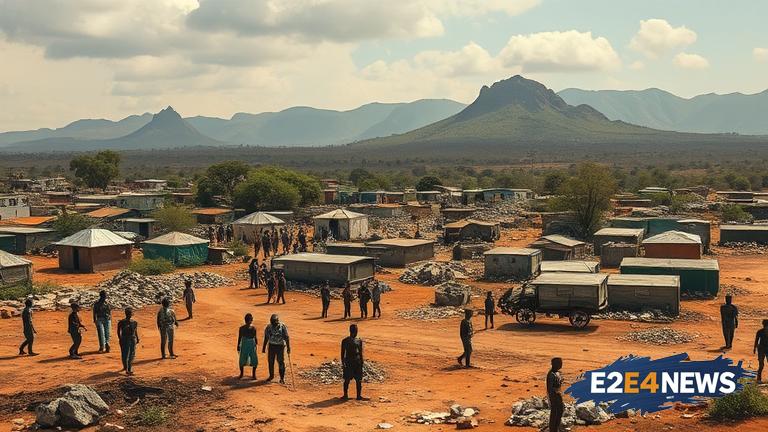South Africa is on the cusp of a demographic disaster, with the bedroom being on strike, as aptly put by Pali Lehohla. The country’s population growth rate has been declining, and the fertility rate has dropped significantly. This decline in population growth is attributed to various factors, including the COVID-19 pandemic, which has had a devastating impact on the country’s economy and social structures. The pandemic has led to increased mortality rates, decreased fertility rates, and a rise in poverty and inequality. Furthermore, the country’s high unemployment rate, particularly among the youth, has contributed to a decline in marriage rates and an increase in single-person households. The demographic crisis is also characterized by a rapidly aging population, with significant implications for the country’s pension and social security systems. The crisis is further exacerbated by the brain drain, as many skilled and educated South Africans are leaving the country in search of better opportunities. The consequences of this demographic disaster will be far-reaching, with potential impacts on the country’s economic growth, social cohesion, and political stability. The decline in population growth will lead to a reduction in the workforce, resulting in a shortage of skilled and unskilled labor. This, in turn, will have a negative impact on the country’s economic growth, as a smaller workforce will lead to reduced productivity and competitiveness. Moreover, the demographic crisis will also have significant social implications, including an increase in poverty and inequality, as well as a rise in social unrest and crime. The crisis will also put a strain on the country’s social security systems, including pensions and healthcare. To mitigate the effects of this crisis, the government will need to implement policies that promote population growth, such as family-friendly policies and incentives for marriage and childbearing. Additionally, the government will need to invest in education and skills development, to ensure that the workforce is equipped with the necessary skills to drive economic growth. The private sector will also need to play a role, by providing job opportunities and investing in human capital. Ultimately, addressing the demographic crisis will require a collective effort from government, the private sector, and civil society. It will also require a fundamental shift in the country’s social and economic policies, to prioritize population growth and development. The future of South Africa depends on it, and the time to act is now. The country’s demographic crisis is a ticking time bomb, and if left unaddressed, it will have catastrophic consequences for the country’s future. The government and other stakeholders must take immediate action to address the crisis, by implementing policies and programs that promote population growth and development. This includes investing in education and healthcare, as well as providing incentives for marriage and childbearing. The country’s demographic crisis is a complex issue, requiring a multifaceted approach. It will require the government, private sector, and civil society to work together, to develop and implement policies and programs that address the root causes of the crisis. The crisis is not just a demographic issue, but also an economic and social one, requiring a comprehensive approach. The country’s future depends on its ability to address the demographic crisis, and to create a sustainable and prosperous future for all its citizens.
